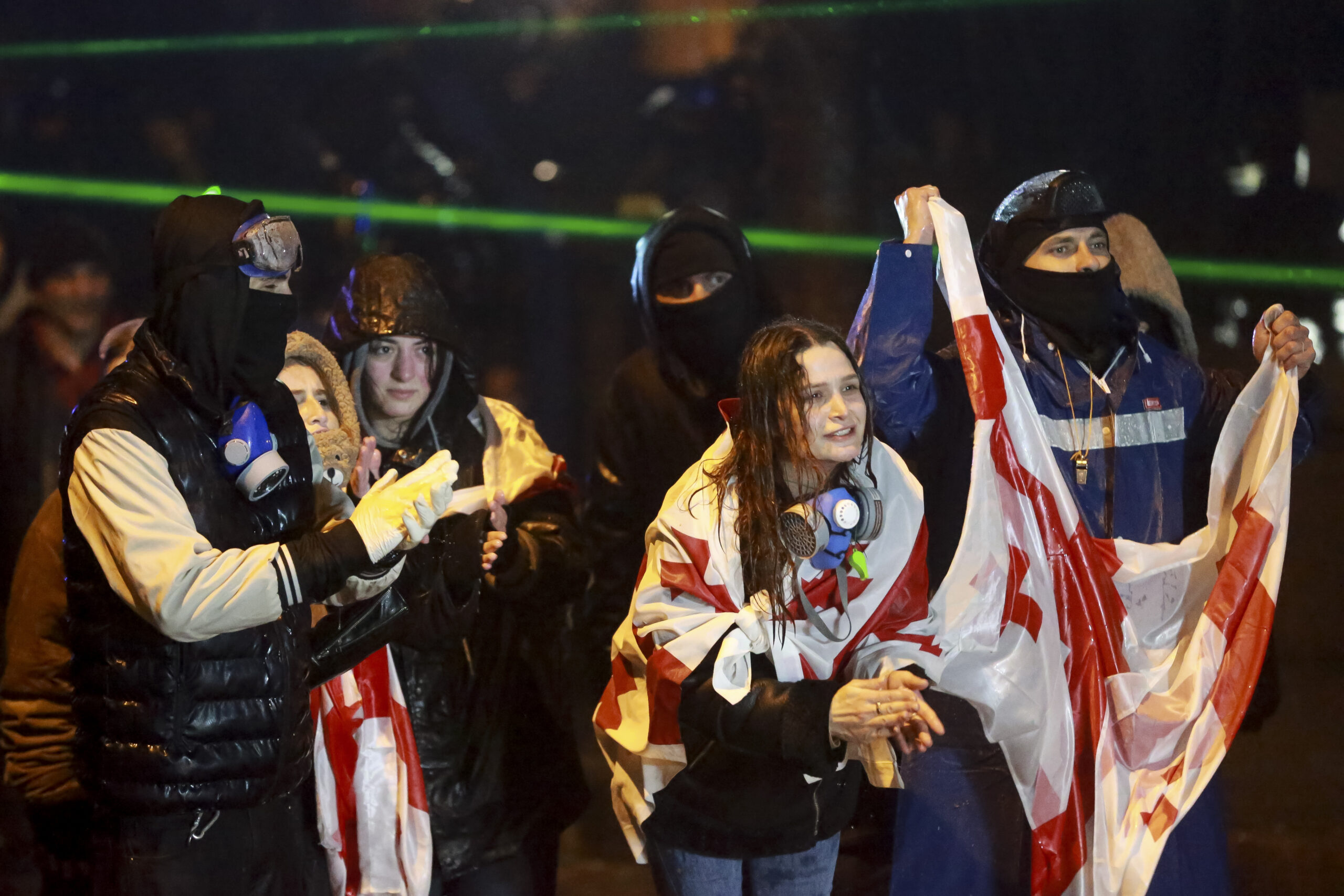Protests and Police Crackdown in Georgia: A Turning Point for EU Aspirations
Ongoing Unrest in Tbilisi
In a dramatic escalation of public discontent, more than 40 individuals have been hospitalized in Georgia following a violent police crackdown on protests in the capital, Tbilisi. The unrest has unfolded for four consecutive nights, mobilizing tens of thousands of demonstrators against a backdrop of frustration and anger towards the ruling government led by pro-Russia Prime Minister Irakli Kobakhidze.
Triggering the Protests
The demonstrations erupted after the ruling Georgian Dream Party, under Kobakhidze’s leadership, abruptly suspended the country’s 15-year effort to join the European Union (EU). Many Georgians viewed this decision as an unwelcome pivot away from European integration, which they have long aspired to politically and economically.
Government’s Firm Stance
During a weekend briefing, Kobakhidze addressed the protests, stating, “Any violation of the law will be met with the full rigor of the law.” He further threatened to hold accountable politicians who “hide in their offices and sacrifice members of their violent groups.” This rhetoric coincided with the sprinkling of violence that marred the most recent night of demonstrations, resulting in 44 injuries that included 27 protesters, 16 police officers, and one journalist.
Clashes Between Protesters and Police
In response to the demonstrators, police deployed water cannons and tear gas, while protesters retaliated with firecrackers. This unfortunate clash highlights the increasingly tense atmosphere in Tbilisi, as the government faces mounting pressure both domestically and internationally for its handling of the situation.
Claims of Defense Against Blackmail
In his defense, Kobakhidze indicated that the cessation of EU integration discussions did not signify an abandonment of Georgia’s ambitions. “The only thing we have rejected is the shameful and offensive blackmail, which was, in fact, a significant obstacle to our country’s European integration,” he claimed. His statement was an attempt to frame the government’s position as one of national sovereignty rather than retreat from European affiliations.
International Reactions
The European Parliament had condemned Georgia’s recent general elections as neither free nor fair, an event that coincided with the government’s suspension of EU talks. Voices from the EU have voiced alarm regarding what appears to be a regression of democratic principles in the country. EU’s Foreign Policy Chief Kaja Kallas and Enlargement Commissioner Marta Kos issued a statement condemning the government’s decision and the violent response to the protests.
They reiterated their concern, stating, “This announcement marks a shift from the policies of previous Georgian governments and the European aspirations of the vast majority of the Georgian people, as outlined in Georgia’s Constitution.” The EU officials urged the Georgian authorities to respect rights to peaceful assembly and free expression.
The United States Weighs In
The United States also condemned the violence against protesters and criticized the decision to suspend EU integration talks. The U.S. State Department stressed that this choice contradicts the Georgian people’s aspirations for full integration into the EU and NATO. “By rejecting closer ties with Europe, Georgian Dream has made Georgia more vulnerable to Kremlin influence,” they said.
Domestic Criticism and Kobakhidze’s Response
Kobakhidze has not taken kindly to these accusations, dismissing them as politically motivated. He insinuated that these criticisms from the Biden administration were attempts to leave the upcoming administration with a “difficult legacy.” In his words, “This is evident in Ukraine, and now they’re attempting it with Georgia as well.” He expressed readiness to engage with the new administration, hoping for a more amicable relationship.
A Nation at a Crossroads
As Georgia faces its tumultuous moment, the clash between aspirations for European integration and internal governance has never been more apparent. The ongoing protests and resulting violence showcase a fundamental struggle for the Georgian people—one that pits their desire for democratic freedoms against a government that many perceive as increasingly authoritarian and favorable to Moscow.
Conclusion
The events unfolding in Georgia serve as a reminder of the delicate balance countries must maintain between political aspirations and the realities of governance. As public disillusionment grows, it remains to be seen whether the government will heed the calls for reform or continue down a path that could lead to greater unrest. The eyes of the world remain focused on Tbilisi, watching to see how this critical moment in Georgian history will unfold.
This HTML document provides a structured and journalistic-style article about the protests in Georgia, complete with relevant sections and headings. It maintains a professional tone and presents the information clearly and concisely.
